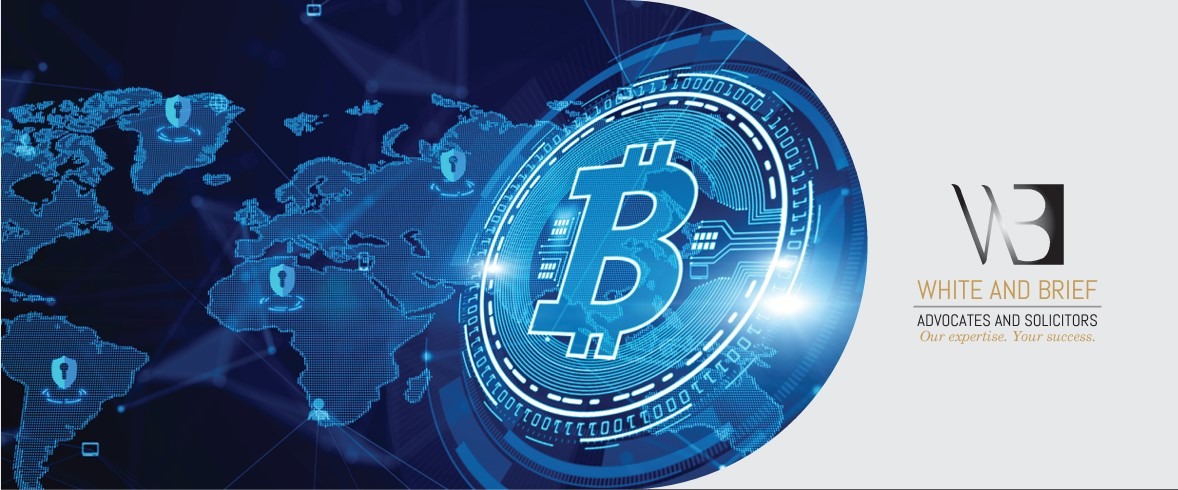Betting Big on NFTs? Brace Yourself


In the last quarter, the global economic market witnessed a manifestation of the effect digital assets and Web 3.0 have had on the overall market cash flow.
Venture capital investments in fintech and crypto projects native to the metaverse and Web 3.0 have already touched USD 10 billion globally.[1] The majority of the investments were made in crypto and non-fungible token (NFT) exchanges, decentralized financial applications, and token issuers.[2]
Currently, Indian stakeholders are grappling with the issue of inadequate regulation in the Web 3.0 space. Indian policymakers have not developed a law for regulating Web 3.0 despite it being in the pipeline for more than two years. Although tax implications and advertising standards have been deliberated upon and decided, the lacuna in the Indian legal regime needs the attention of stakeholders and lawmakers. During the Web 2.0 phase, India was unable to participate in policy making for internet governance due to limited consumption heft and foreign innovation.
Today, India is striving to position itself as an authority in the blockchain space by leveraging the local brainpower and consumer base. While NFTs indeed emerged as an extension of celebrity identities in India, today its presence is felt across industries. Entities such as GaurdianLink, MakeMyTrip and Lakme Fashion Week are also dabbling into NFT collectibles. However, the prevailing regulatory grey zones in the intellectual property laws, finance rules, securities laws and cybercrime laws call for the immediate action of Indian policymakers to implement enabling and safeguarding provisions. Given the lack of regulations and policy grey zones, investing in digital assets such as NFT is fraught with challenges, requiring careful consideration and due diligence.
Challenges of NFT Transactions
Protections under Intellectual Property Law
NFT are cryptographic assets on a blockchain. Creators in the Web 3.0 space can attain a license for recreation and use from the copyright owner of the original artwork. However, the original NFT owner retains the copyright in the original digital asset. Essentially, the license enables an NFT license to manipulate and capitalize on the artwork digitally. On the other hand, the original NFT owner can invest and capitalize on the growth of the NFT through existing brand identities such as trademarks, logos, characters, books, movies, music, illustrations, etc.
In layman’s terms, even if you manage to buy an NFT license, you are still not automatically permitted to manipulate the artwork licensed or sell anything related to the said NFT. The original owner’s consent plays a key role in establishing the scope and nature of the rights enjoyed by an NFT license owner.
It is pertinent to design an NFT license agreement to fit your specific needs despite there being certain boilerplate smart contracts being used by key industry players. In exercising the IP rights by NFT owners, any transfer, sub-licensing or assignment and terms for such transfer, sub-license or assignment must be chalked out with specific attention to the terms of the original license. In certain cases, original owners may limit the scope of control over modification of the original digital asset and what may be combined with the said digital asset.
For instance, NFTs can be created in multiple layers within the same artwork, where each layer is made by different artists and then individually tokenized. Furthermore, it can also be programmed to change its layers based on certain triggers. These characteristic features of NFTs may lead to some undesired usage of the original owner’s IP that can only be prevented by explicit limitations in the smart contract which governs the digital asset’s usage.
Under the Copyright Act, 1957, for any assignment of copyright to be valid, such assignment will have to necessarily be in writing and signed by the assignor or his/her duly authorized agent, specifying the rights, duration and territorial extent of such assignment. NFT owners can, in addition to ownership rights, include terms on how subsequent purchasers may attain ownership of the subject matter NFT and select the marketplaces (open, curated or proprietary) on which their NFT can be resold.
The NFT license can prescribe specify the rights and restrictions on displaying, copying and usage of the NFTs. A general use license usually assigns a worldwide, non-exclusive, non-transferable, royalty-free license to use, copy and display the same, whereas a commercial use license can be crafted to allow the purchaser to commercially exploit the NFT. NFT owners and creators can also opt to include terms prescribing fees and royalties associated with the initial and subsequent sale of the NFT.
Applicability of other Indian Laws
Decentralized finance (De-Fi) is under threat of fraudulent and money laundering activities due to the nature of blockchain technologies. De-Fi-related hacks have hiked 2.7 times in 2021 from 2020.[3] From human trafficking and terrorist financing to drug trading, cryptographic money laundering has harrowing effects. The highly lucrative market for NFTs coupled with anonymity could potentially become an avenue for money laundering and other illegal funds transfers, if not already. At present, there is no generally accepted standard for monitoring the flow of assets in the digital space despite the potentially catastrophic risks it may result in.
The Prevention of Money Laundering Act, 2002 prohibits all forms of private cryptocurrencies. However, it fails to prescribe the technologies that fall under the scope of the term “cryptocurrencies” and what aspects of the same will constitute a violation of the law. However, the Ministry of Corporate Affairs as of 24 March 2021 mandated all listed and unlisted companies to declare all cryptographic transactions in their balance sheets effective 01 April 2021 by inserting item (xi) in Paragraph 5 of Schedule III, Part II of the Companies Act, 2013. On the other hand, policymakers need to notify virtual asset providers as “Reporting Entities” under the Prevention of Money Laundering Act, 2002 and stipulations to upgrade reporting requirements needs to be prescribed.
In a recent case of Hitesh Bhatia v. Mr. Kumar Vivekanand[4], the Delhi High Court, in dealing with cryptocurrency transactions, held that cryptocurrency transactions shall comply with the general laws in India such as Prevention of Money Laundering Act, 2002, Indian Penal Code, Narcotic Drugs and Psychotropic Substances Act, 1985, Foreign Exchange Management Act, 1999, Tax laws and all RBI regulations relating to Know Your Customer, Combating of Financing of Terrorism compliance guidelines[5], and Anti-Money Laundering requirements. While the Court did not adjudicate on the issue of the legality of cryptocurrencies, the observations made in the instant case pave a path for effective navigation of regulatory discourse associated with such complex technologies and will by extension apply to NFT transactions as well.
Cybersecurity and Data Privacy
It is reported that cryptocurrencies worth USD 5.2 billion could be stolen in 2022.[6] Hackers use stolen private keys and passwords attained through security breaches caused by software bugs to access crypto funds. While establishment of identity will create more secure platforms for virtual interactions, private players face uncertainty due to the ever-evolving data privacy regulations and their enforcement owing to the nascent stage at which the law currently. Another concern that arises is the loss of data since all data is stored virtually. A blockchain may be operated anonymously, thereby increasing the risk of compromised and hacked accounts resulting in long-lasting damage and loss of data for account-holders. In such a situation, the ability to anonymously operate the blockchain becomes a problematic feature.
Industry stakeholders will need to conduct background checks to verify the integrity of the seller’s ownership rights and the authenticity of the online marketplace. Players are advised to conduct transactions only with verified sellers on reputed platforms.
Insights and Takeaways
At the moment, from a regulatory perspective, policymakers are split-minded, but it is clear more policies to incentivize digital assets are needed. The first step toward a novel framework to regulate NFTs is the creation of a definition. The definition needs to be wide enough to accommodate the various sub-classes of virtual assets that currently exist and may be invented in the future.
It is at this juncture that Indian entities such as the RBI, SEBI and the Ministry of Finance can undertake joint regulation of the NFT space and position India as an industry standard-setting nation. A coordinated approach will also ensure that the convoluted issues relating to crypto-assets are adequately addressed. These entities, in consultation with the legislature and industry experts, can deliberate regulatory concerns and introduce forward-thinking policies and protocols.
Until the implementation of appropriate NFT regulations and policies in India, stakeholders will do well to be mindful of potential pitfalls in transacting in NFTs and should consider taking adequate protective steps, such as conducting thorough client / customer due diligence to ensure the legitimacy of the transacting party and title in NFT assets and ensuring detailed contractual terms tailored to their unique needs instead of solely relying on boilerplate smart contracts available on mainstream platforms.
[1] Venture Capitalists Catch Crypto Fever, Stampeding Towards Web 3.0, NDTC Profit.
[2] Ibid.
[3] “DeFi Has Accounted for Over 75% of Crypto Hacks in 2021”, CoinDesk.
[4] Hitesh Bhatia v. Mr. Kumar Vivekanand, Case No. 3207/2020.
[5] Master circular of RBI dated July 1, 2013.
[6] “DeFi-fo-fum: hackers find new ways to gobble up crypto”, Economic Times.
By entering the email address you agree to our Privacy Policy.



